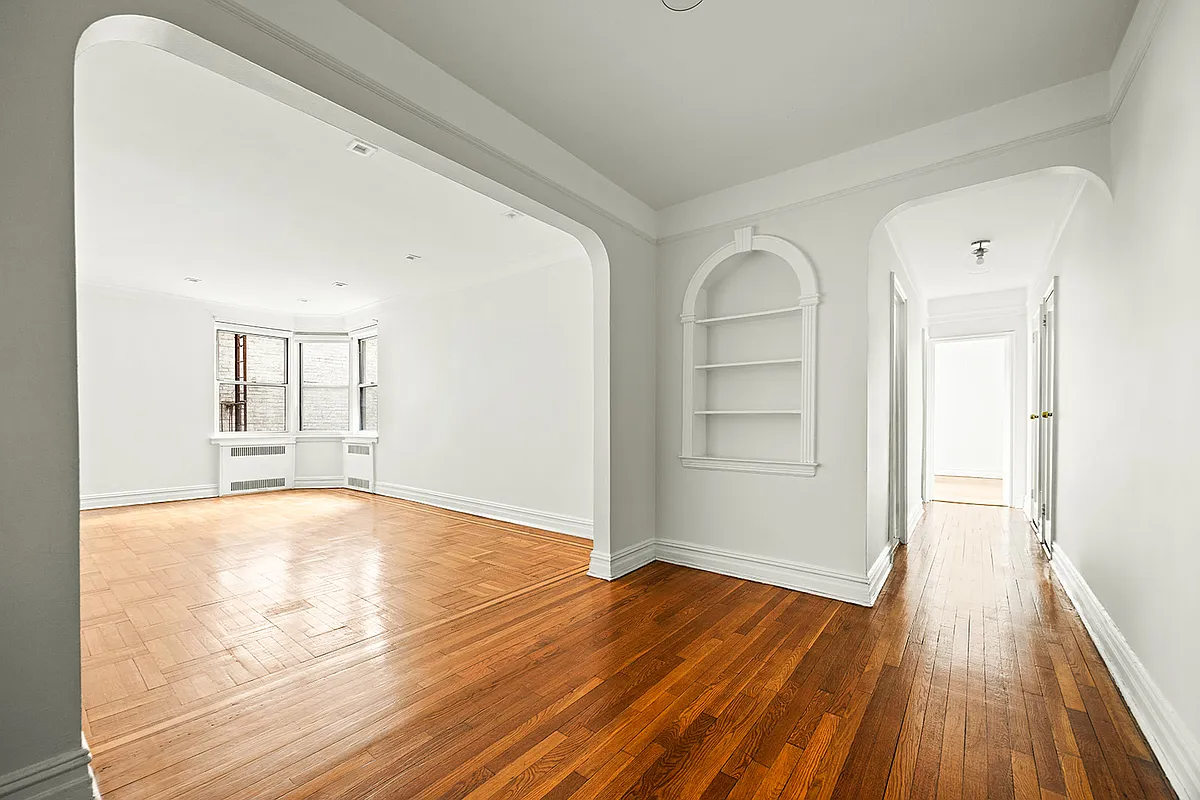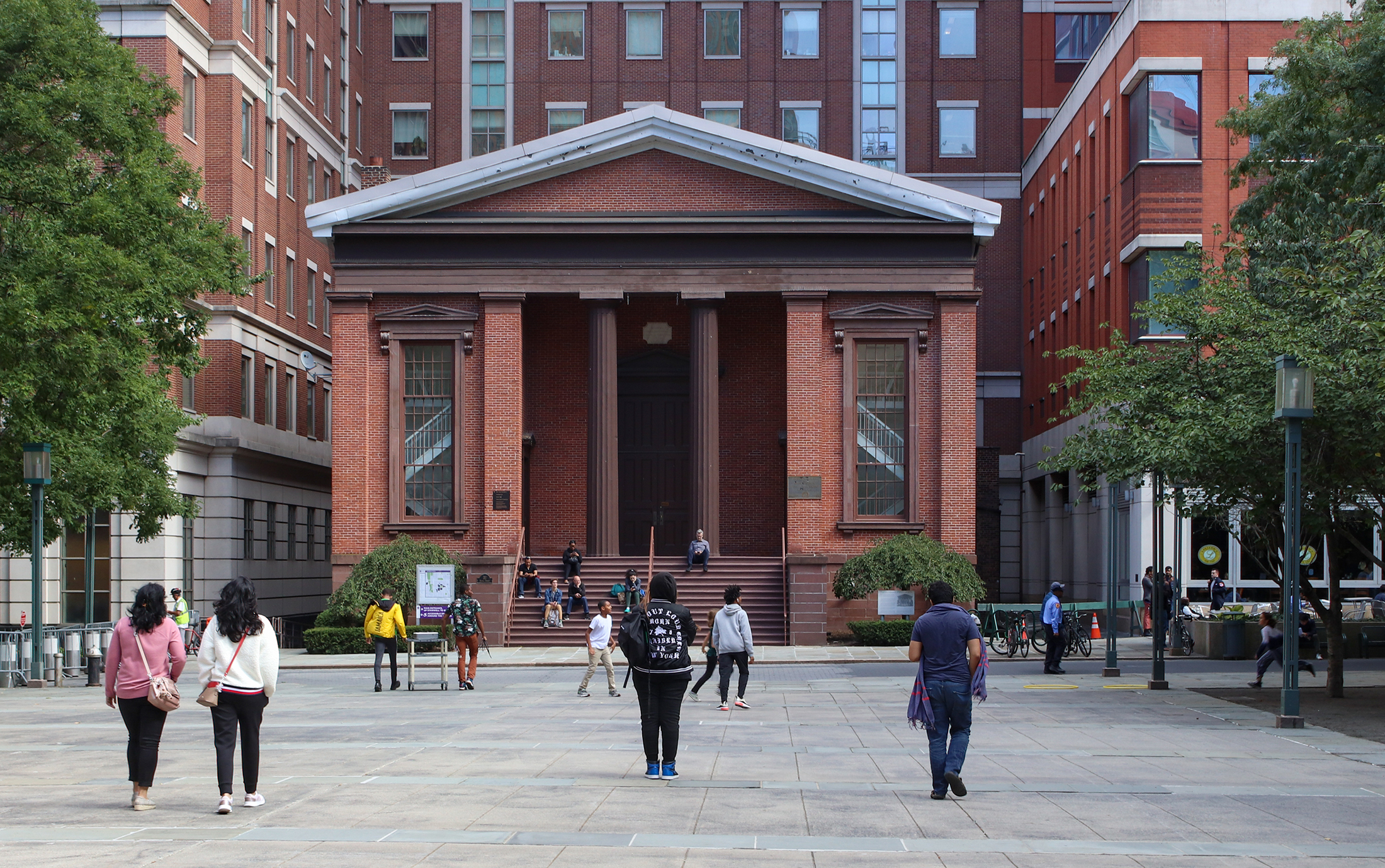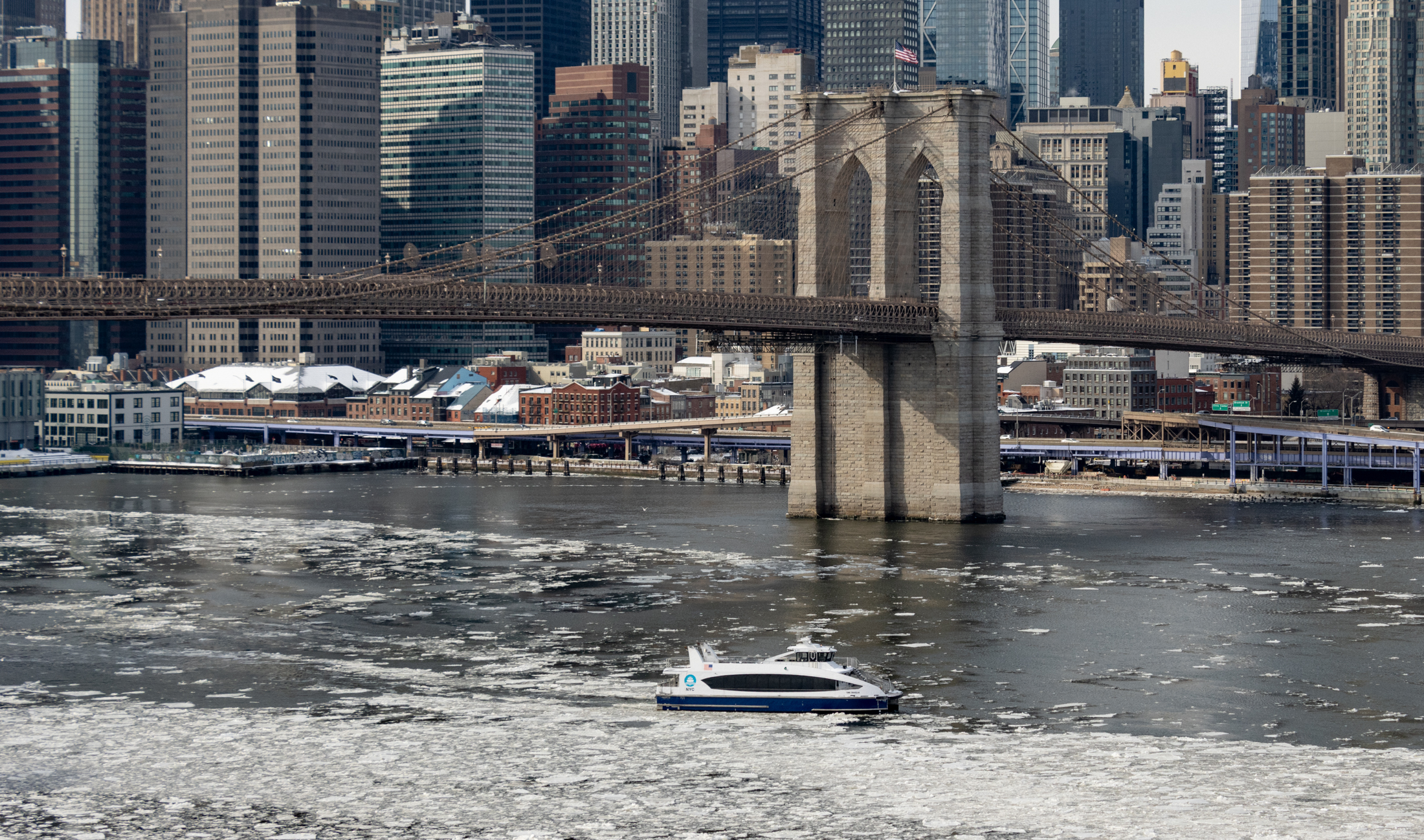Ballot Measures on Housing Get Green Light Despite Council Pushback
The Board of Elections approved five measures that will go to voters in November, and declined to allow an independent mayoral candidate to drop out of the race.

Board of Elections members hold a meeting in Lower Manhattan ahead of the mayoral vote, September 9, 2025. Photo by Alex Krales/THE CITY
by Marina Samuel
This article was originally published on September 9 at 8:35 p.m. EDT by THE CITY
Ballot questions are set for November, when voters will ultimately decide a feud between the mayor and City Council over their powers.
The city Board of Elections on Tuesday voted to certify five ballot questions drafted by a charter revision commission convened by Mayor Eric Adams, including three that aim to expedite reviews of some proposed housing development.
The board approved the charter questions despite calls from City Council leadership to reject the three housing-related proposals.
In an August 27 letter to the Board of Elections, Council leaders called for the three ballot questions to be rejected, arguing that they violate state law and “would put a wide range of land use decisions in the hands of mayoral appointees.”
They had argued that the proposed changes to the city charter would undercut their power over zoning and development decisions in their districts, and had filed an objection with the Board of Elections, arguing that the wording of the ballot items did not inform voters they would deplete the Council’s authority.
Alec Schierenbeck, the executive director of the Charter Revision Commission, wrote in a letter to the board in response that the ballot questions “give New Yorkers a rare opportunity to have a direct say in the future of housing policy in our city” and urged election officials to dismiss the Council’s request.
The measures, which have the backing of pro-development advocates and interests, aim to simplify and expedite land use review procedures to streamline new housing development in the community districts with the city’s lowest share of affordable development and for small-scale projects. In both cases, the City Planning Commission — and not the Council — would have final say.
The third disputed ballot item would create an affordable housing appeals board made up of the mayor, the local borough president and the Council speaker for projects the Council rejects.
The other two proposals, which would unify and digitize the official City Map and move local elections to even-numbered years, faced no opposition from the Council leadership.
Charter commission chair Richard Buery Jr. had said that the panel had been prepared to pursue legal action if any of the ballot measures failed to win approval from the Board of Elections. The Council leadership has not yet said whether it plans to go to court. Thursday is the deadline for the Board of Elections to certify the general election ballot for November 4.
Council leaders blasted the meeting’s outcome. Spokesperson Julia Argos wrote that the mayor’s charter commission “could have offered honestly worded ballot proposals to give voters the choice to make informed decisions, but it chose not to and instead is attempting to trick voters with buzzwords and slogans.”
Housing advocates, meanwhile, celebrated the board’s decision. The pro-housing group Open New York and the political spending committee it formed to raise $3 million to support the changes claimed credit for prompting the Board of Elections to allow the amendments on the ballot by mobilizing members to inundate the board with phone calls and emails.
“These are very thoughtfully designed measures to really target the worst actors and finally make a dent in our cost of living crisis,” said Annemarie Gray, executive director of Open New York.

The mayor convened the 13-person charter panel in December, aiming among other goals to tackle the housing crisis by streamlining approvals. The Council had launched its own commission one month before the mayor’s but under the City Charter, the mayor’s takes priority and trumps the other group.
At the meeting the board also ruled against independent mayoral candidate Jim Walden, who had sought to be removed from the ballot after announcing last week that he will drop out of the race as part of an effort to consolidate opposition to Democratic nominee Assembly Member Zohran Mamdani. “New Yorkers deserve a choice between extremism and practical leadership,” Walden declared to the board. But the commissioners rejected Walden’s request, citing his failure to meet the May 30 deadline to file a certificate of declination after submitting nominating petitions.
Facing pressure to drop out and reports that the Trump administration and private employers are floating job opportunities, Mayor Eric Adams also secured a spot on the ballot, under the Safe & Affordable line.
Adams’ charter commission chair Buery made it clear the members of the panel intend to campaign on behalf of the proposals.
“This November, New Yorkers will have the opportunity to vote on important proposals to address our housing crisis and boost participation in local elections,” he said following the vote. ”We look forward to a robust public education campaign over the next two months to ensure voters know about these proposals and their potential impact on the city’s housing and elections.”
— Additional reporting by Greg David.
Related Stories
- Homeowners Ready to Legalize Basement Apartments Stuck in Red Tape
- City Council Passes Tweaked ‘City of Yes’ Designed to Add 82K Homes Over 15 Years
- Brooklynites React to Amended ‘City of Yes’ Housing Proposal
Email tips@brownstoner.com with further comments, questions or tips. Follow Brownstoner on X and Instagram, and like us on Facebook.





What's Your Take? Leave a Comment